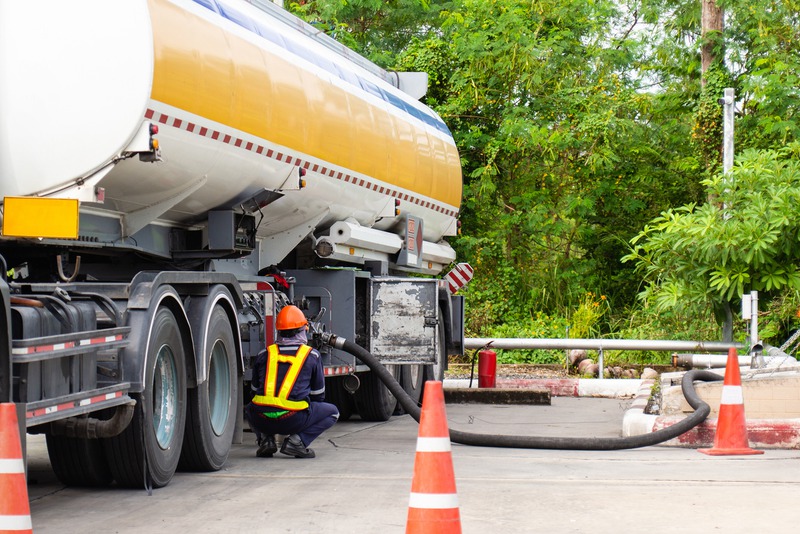
How to Choose a Reliable Fuel Supplier?
June 27, 2024Finding the right fuel supplier is like choosing a trustworthy mechanic or a dependable grocery store – you’re looking for quality, reliability, and fair pricing. From heating your home to fueling your business operations, having a reliable fuel supplier can’t be overstated. Keeping warm during the winter months or ensuring your fleet of trucks is on the move hinges on a steady fuel supply. Since this choice affects the smooth running of your daily life or business, you must consider several factors to ensure you make an informed decision.
1. Know Your Fuel Needs
Having a good grasp on what you’re looking for is crucial. Do you need a regular supply of heating oil to keep your home cozy, or are you after diesel for your roster of company vehicles? Figuring out your specific needs will help you select a fuel supplier equipped to handle your demands.
-
Identify the type of fuel you require (heating oil, diesel, propane, etc.)
-
Determine the frequency of deliveries you need
-
Estimate the volume of fuel you use within a certain period
Once you’ve outlined your needs, you’ll be in a better position to evaluate what a fuel supplier can offer you.
Opting for a fuel supplier that understands the ins and outs of fleet needs is essential. To get the best in class, click here to investigate suppliers with stellar track records in punctual fleet fuel delivery services.
2. Reputation
Research the reputation of each potential supplier by reading online reviews, testimonials, and ratings from previous customers. Additionally, ask for recommendations from friends, family, or business associates who have experience with the supplier. A supplier with a good reputation for reliability, quality service, and customer satisfaction is likely a trustworthy choice.
3. Pricing
While competitive pricing is desirable, be cautious of prices that seem unusually low or too good to be true. Compare pricing among different suppliers to ensure that you’re getting fair and transparent rates for the quality of service and fuel products offered. Consider factors such as delivery fees, minimum order requirements, and additional charges that may affect the overall cost.
4. Customer Service
Evaluate each supplier’s level of customer service, including responsiveness to inquiries, communication channels, and willingness to address your concerns or questions. Choose a supplier that treats you with respect and professionalism, regardless of the size of your order. Prompt and courteous customer service is essential for maintaining a positive relationship and resolving any issues that may arise.
5. Experience
Consider the experience and expertise of each potential supplier in the fuel industry. An established supplier with a long history and proven track record will likely have the knowledge, resources, and infrastructure to handle unforeseen challenges and provide reliable service. Look for suppliers that demonstrate a commitment to quality, safety, and continuous improvement in their operations.
6. Delivery Flexibility
Assess the delivery flexibility offered by each supplier, including options for scheduling, frequency, and emergency deliveries. Choose a supplier that can accommodate your specific needs and preferences regarding delivery timing and volume. Suppliers that offer flexible delivery schedules can better align with your fuel consumption patterns and ensure that you have an uninterrupted fuel supply when needed.
7. Credentials
While a friendly chat with a potential supplier is a good start, you must dig deeper into their credentials. This includes scrutinizing licensing, insurance, and safety records. A supplier that prioritizes safety and compliance with industry regulations is a business that values its customers and its reputation.
Insurance is critical because it protects you from liability in case of accidents during delivery. Get proof of insurance from your potential fuel supplier to ensure you’re covered.
3. Service Agreements and Contracts
Nothing says commitment like a well-drafted service agreement. A transparent contract outlines the terms and conditions of your supply arrangement. It should be clear, concise, and without hidden fees or confusing jargon.
Points to look for in a contract include:
-
Delivery schedules
-
Pricing structure and payment terms
-
Details about service interruptions and emergency protocols
-
Termination clauses
Always read the fine print, and don’t be shy to ask questions. After all, details matter when you’re dealing with regular supply services.
4. Environmental and Safety Considerations
Sustainability isn’t just a buzzword; it’s a critical consideration for businesses and homes. A dependable fuel supplier should be committed to environmental safety and sustainable practices. This includes responsible spill prevention measures and protocols to mitigate environmental impact. They should also proactively employ the latest technologies to reduce emissions and increase efficiency.
When it comes to heating your home, a fireplace’s undeniably cozy, but did you know that modern professional propane fireplace inserts can provide the charm of a traditional fireplace with the added benefits of efficiency and cleanliness? These units are designed to fit into existing fireplaces and use propane as a fuel source, which burns cleaner than wood.
5. Additional Services and Benefits
Some fuel suppliers go the extra mile by offering additional services to their customers. These can range from equipment maintenance plans to energy audits that can help you save money in the long run. Here are a few perks that can sway your decision:
-
Energy-conservation advice
-
Loyalty rewards programs
-
Flexible payment plans
-
Online account management
An attentive supplier who aims to help you manage your energy consumption effectively is worth considering, as they bring added value.
No matter what scale you’re operating on, reliable delivery is non-negotiable. You need a supplier who can quickly adapt to commercial and residential settings, offering timely deliveries and responding swiftly in emergencies. Choosing this propane company means opting for a partner who understands the nuances of the residential hearth and the commercial boiler room.
6. Local Versus National Suppliers
There’s often a debate about whether local or national fuel suppliers are the better choice. Local suppliers may offer a more personal touch and understand regional fuel needs better. They’re also typically more elegant and can provide faster response times.
National suppliers, conversely, can often leverage economies of scale to offer more competitive pricing. They might also have more resources for comprehensive services. Your choice will depend on which factors matter most to you and your fuel supply needs.
Wrapping Up
When selecting a fuel supplier, there’s a lot to consider, but keep the numerous considerations manageable. By systematically prioritizing what’s most important for your situation, you can find a partner to keep your life’s or business’s engines running smoothly year-round. Look for quality, affordability, and reliability, but remember the value of customer service and environmental stewardship. With all these elements in balance, you’ll choose a reliable fuel supplier that aligns seamlessly with your energy needs and values.




